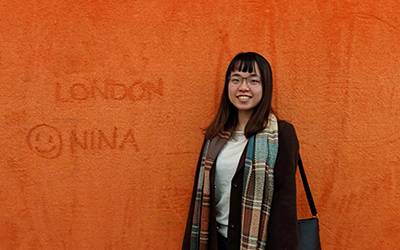Nina Ming-Hsin Hsu - Medical Anthropology MSc
23 March 2021

Before studying for the MSc in Medical Anthropology at UCL, I was a medical graduate in Taiwan. I love the Master’s program for it deepened my understanding of Medical Anthropology and equipped me with the ability to conduct independent anthropological research. The core course “Medical Anthropology” and elective course “Aspects of Applied Medical Anthropology” highlight critical topics in the field such as clinical ethnography, medicalisation, pharmaceuticals, infectious disease, health inequities and care. These courses assisted me to have a clear structure about critical debates and theory in Medical Anthropology in mind. Besides this, I enjoyed (and now miss!) the fruitful discussion during the seminars. My cohort was composed of people from different countries and diverse disciplines ranging from medicine, anthropology, psychology, philosophy to biomedicine. This diversity enabled me to compare medical practices across the world and to learn how people from distinct sociocultural background approached the same issues during the seminars.
The best part of the program was being able to conduct actual fieldwork for my dissertation. As a physician, one main reason that I pursued a Master’s in medical anthropology is to learn to conduct anthropological research and to see how it can be applied in clinical practices. Thus, it is great that the master program provides nice training in research methods and support for ethics applications. I designed my own anthropological research, collected ethnographic materials, and analysed the materials as an integrated part of the Master’s degree. I finished my dissertation titled “An Anthropological Exploration of Postpartum Depression in Taiwan: Women’s Experiences, Sociocultural Causes, and “Doing the Month.” Through the training of the Master’s program, I gained the crucial skills for conducting independent anthropological research.
After graduating from UCL, I now work as a physician in Taiwan. I am also working on sharing my Master’s research results through conferences and publications. When working as a physician, my Medical Anthropology training makes me alert to how politico-economic factors make certain populations vulnerable to particular illnesses. I reflect on how routine medical practices are socially constructed and on the pros and cons of medicalisation. Inspired by my anthropological training, I take field notes of my clinical practices and examine my clinical work through an anthropological lens after work. All in all, I am absolutely glad that I pursued a Master’s degree in Medical Anthropology for it provides me with diverse perspectives and research approaches when practising medicine! I will continue study Medical Anthropology and work to conduct research utilising an anthropological approach.
 Close
Close

